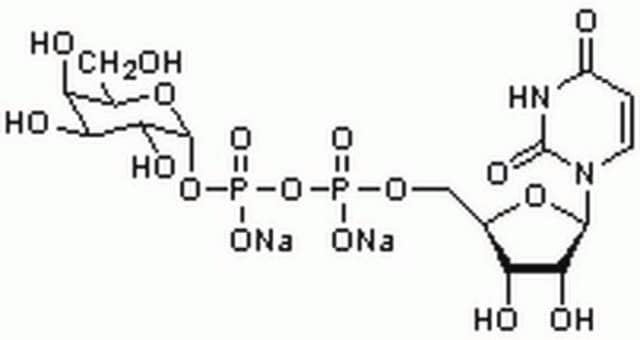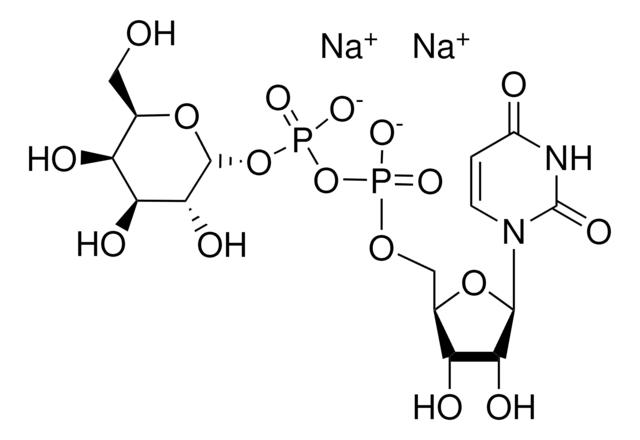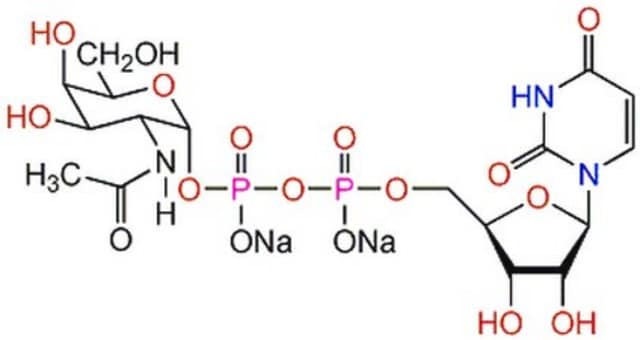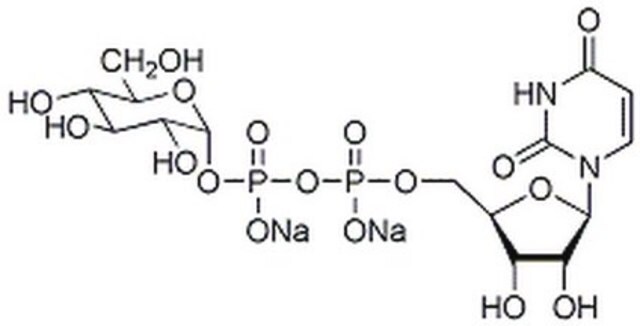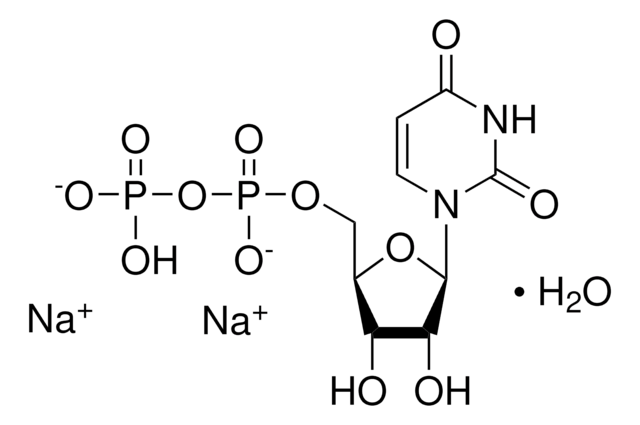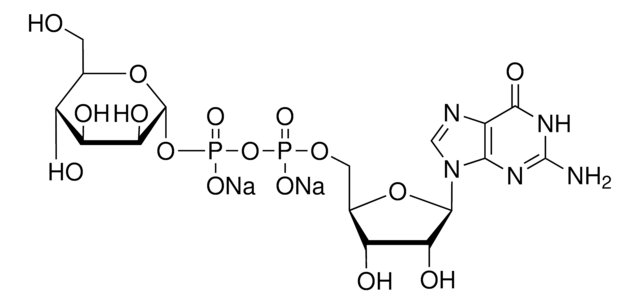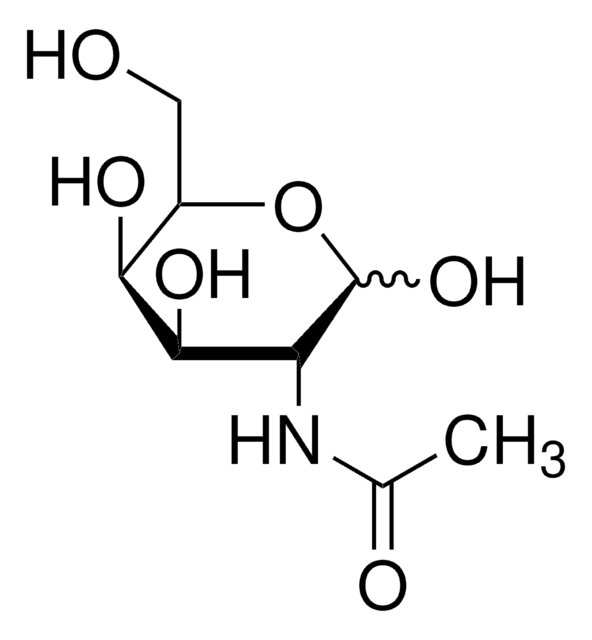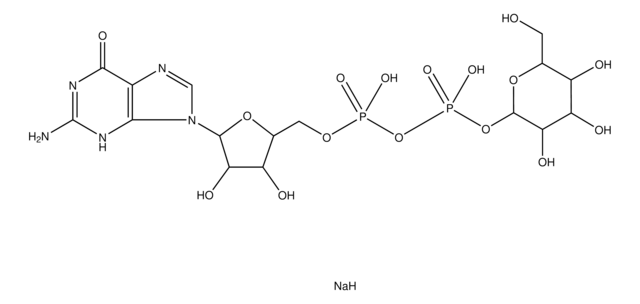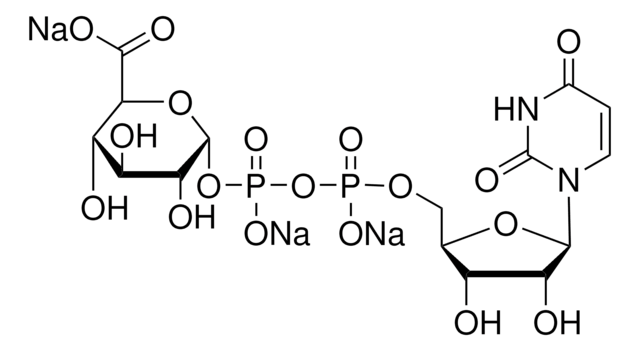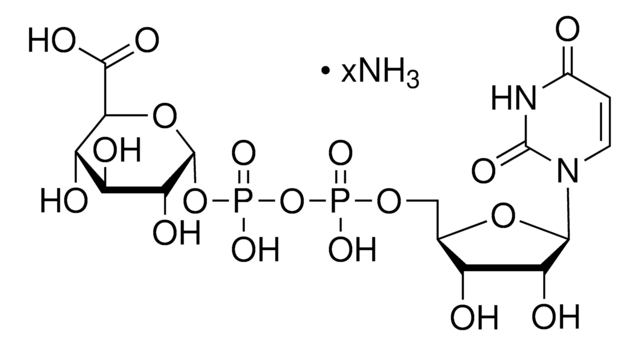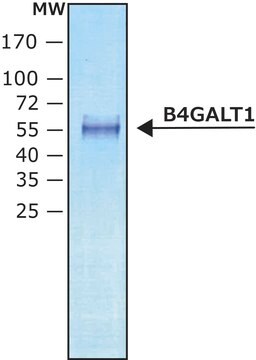U5252
Uridine 5′-diphospho-N-acetylgalactosamine disodium salt
≥97%
Synonym(s):
(UDP)-GalNAc, UDP-GalNAc, UDP-N-acetylgalactosamine, Uridine[5′]diphospho[1](2-acetamino-2-deoxy-α-D-galactopyranose) disodium salt
About This Item
Recommended Products
biological source
synthetic (organic)
Quality Level
Assay
≥97%
form
powder
storage temp.
−20°C
SMILES string
[Na+].[Na+].CC(=O)N[C@@H]1[C@@H](O)[C@@H](O)[C@@H](CO)O[C@H]1OP([O-])(=O)OP([O-])(=O)OC[C@H]2OC([C@H](O)[C@@H]2O)N3C=CC(=O)NC3=O
InChI
1S/C17H27N3O17P2.2Na/c1-6(22)18-10-13(26)11(24)7(4-21)35-16(10)36-39(31,32)37-38(29,30)33-5-8-12(25)14(27)15(34-8)20-3-2-9(23)19-17(20)28;;/h2-3,7-8,10-16,21,24-27H,4-5H2,1H3,(H,18,22)(H,29,30)(H,31,32)(H,19,23,28);;/q;2*+1/p-2/t7-,8-,10-,11+,12-,13-,14-,15?,16?;;/m1../s1
InChI key
HXWKMJZFIJNGES-QCVFHWOISA-L
Looking for similar products? Visit Product Comparison Guide
General description
Application
Storage Class Code
11 - Combustible Solids
WGK
WGK 3
Personal Protective Equipment
Certificates of Analysis (COA)
Search for Certificates of Analysis (COA) by entering the products Lot/Batch Number. Lot and Batch Numbers can be found on a product’s label following the words ‘Lot’ or ‘Batch’.
Already Own This Product?
Find documentation for the products that you have recently purchased in the Document Library.
Customers Also Viewed
Articles
Explore tools for glycosyltransferase synthesis and modification of glycans, such as glycosyltransferases and nucleotide sugar donors.
LC-MS/MS method quantifies similar polar nucleotide activated sugars using Supel™ Carbon LC column for simultaneous analysis.
Enzymatic glycosyltransferase specificity challenges the one enzyme-one linkage concept.
Our team of scientists has experience in all areas of research including Life Science, Material Science, Chemical Synthesis, Chromatography, Analytical and many others.
Contact Technical Service
